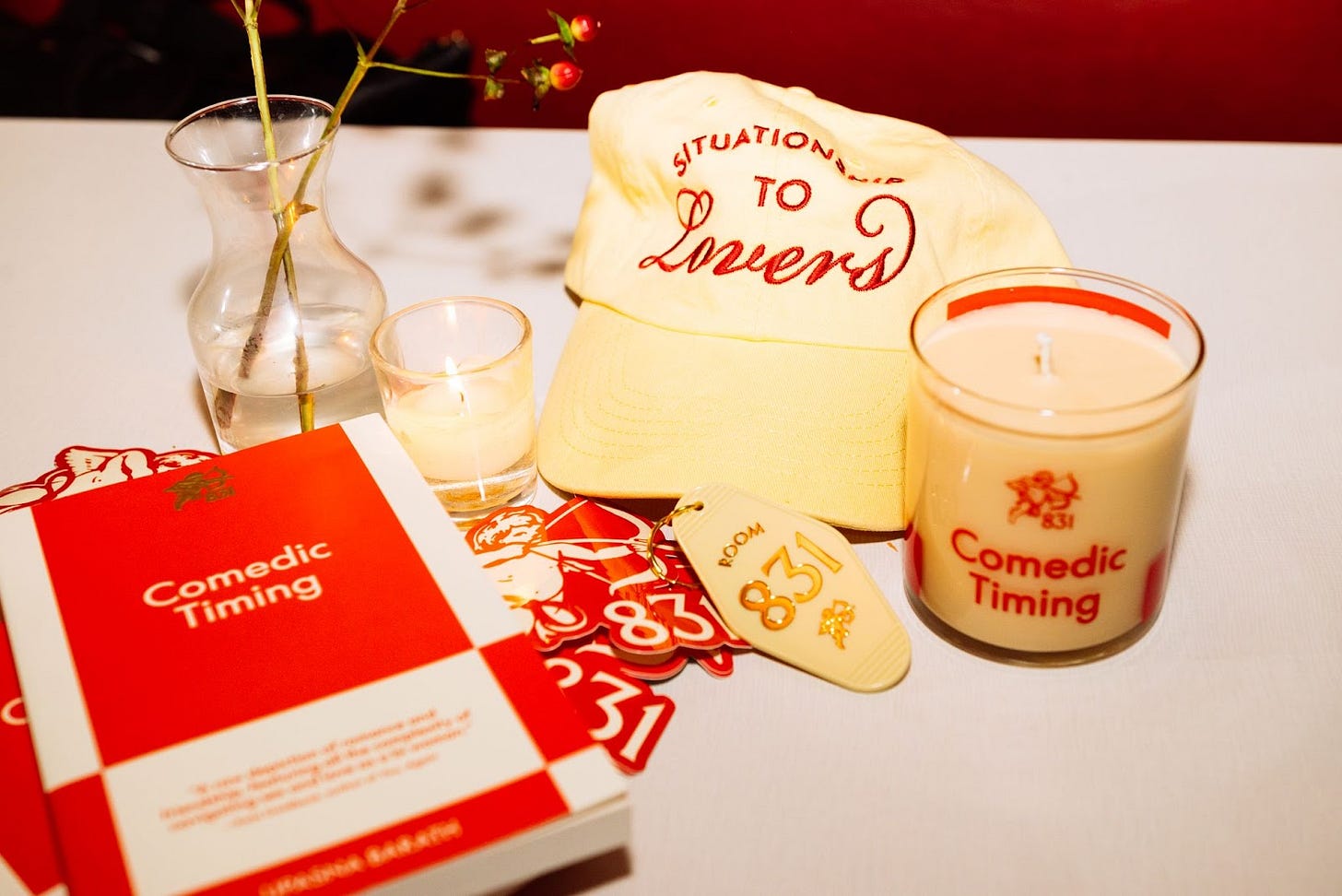Claire Mazur and Erica Cerulo are longtime friends of WITI. They have a new company called 831 Stories.
Claire here. Back in 2020, amidst converging national and global crises, my friend Erica and I found comfort and escapism from a singular source: romance novels.
We were drawn to their formulaic storylines, guaranteed happy endings, and explicit sex scenes, and we weren’t alone. On Instagram and TikTok, women ranging from Mormon mommy bloggers to gender-studies PhDs to Gen Z college students started feverishly recommending the genre. On long pandemic walks, the two of us would go back and forth about the authors and titles we liked best, and we’d get especially fired up when it came to the topic of the genre as a whole. As lifelong readers, we were surprised that it had taken us so long to fully immerse ourselves in the joy of these books. Though we’d dabbled in the novels of Jasmine Guillory and Helen Hoang previously, we hadn’t given romantic fiction as a whole proper consideration up to that point.
Why is this interesting?
There’s a great line in a LitHub essay by Katie Fustich: “Romance novels are the only type of literature that is considered actively anti-intellectual—the only kind of book one could read and somehow others would have a basis to consider you less intelligent for doing so.” And yet: They’re also one of the only forms of mainstream entertainment that prioritizes portrayals of female pleasure and sexuality.
They celebrate, educate, and deliver cultural commentary through the lens of women’s desire, offering an antidote to the pervasive ways that porn informs our standards around sex and beauty. And romance frequently leverages the structure and familiarity of formula to tell uniquely diverse and progressive stories, honoring the full spectrum of relationship dynamics, physicalities, and proclivities that bring us joy.
Social and cultural significance aside, the genre is, and long has been, a serious economic engine, too. Romance is the fastest-growing, highest-revenue-generating category in publishing. Colleen Hoover, queen of the dark romance, sold more books than the Bible in 2022. Sisters Bea and Lea Koch opened the country’s first romance-only bookstore, The Ripped Bodice, in 2016, and there are now over 40 romance bookstores across the U.S. There are nearly 30 million romance readers domestically, almost half of whom read a book a week. (For context: Almost half of Americans didn’t finish a single book in 2023.)
What’s more: The women at the core of the readership aren’t just voracious readers—they’re true, textbook fans. Their behavior maps one-to-one onto that of comic book fans, sports fans, reality television fans, Taylor Swift fans. They’re seeking more than page-turners; they’re looking for community, immersion, and escapism through the genre. They congregate online and IRL, they write fanfic, and they organize highly coordinated initiatives to support the books and authors they love.
Eventually, it was all too much to ignore. In September of 2024, Erica and I channeled our own excitement about the space into launching 831 Stories, a romantic fiction entertainment company that prioritizes pleasure reading and celebrates the genre’s joyful, enthusiastic fans. (Two weeks ago, we published our third novella, Comedic Timing by Upasna Barath—a modern bi awakening—and, like all of our books, there’s an extended universe that lives beyond its pages.) On our website, fans of the story can nurse their book hangovers with an epilogue, a candle meant to evoke the scent of the male main character, or a gift box featuring the ingredients to make the pasta that he cooks on his first date with our heroine. Not to mention the success we’ve had with in person events…
Next stop? Drawing more men to the genre. Phillies player Bryce Harper and former UK PM Rishi Sunak are already leading the way—and there’s plenty more love to go around. (CM)





A business duo for our times
Legends!